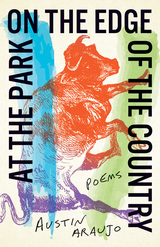
An in-depth analysis of why COVID-19 warnings failed and how to avert the next disaster
Epidemiologists and national security agencies warned for years about the potential for a deadly pandemic, but in the end global surveillance and warning systems were not enough to avert the COVID-19 disaster. In The COVID-19 Intelligence Failure, Erik J. Dahl demonstrates that understanding how intelligence warnings work—and how they fail—shows why the years of predictions were not enough.
In the first in-depth analysis of the topic, Dahl examines the roles that both traditional intelligence services and medical intelligence and surveillance systems play in providing advance warning against public health threats—and how these systems must be improved for the future. For intelligence to effectively mitigate threats, specific, tactical-level warnings must be collected and shared in real time with receptive decision makers who will take appropriate action. Dahl shows how a combination of late and insufficient warnings about COVID-19, the Trump administration’s political aversion to scientific advice, and decentralized public health systems all exacerbated the pandemic in the United States. Dahl’s analysis draws parallels to other warning failures that preceded major catastrophes from Pearl Harbor to 9/11, placing current events in context.
The COVID-19 Intelligence Failure is a wake-up call for the United States and the international community to improve their national security, medical, and public health intelligence systems and capabilities.
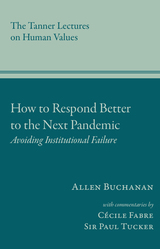
In How to Respond Better to the Next Pandemic Allen Buchanan argues that, contrary to widespread opinion, the primary cause of flawed COVID-19 policy was not defective leadership, but rather institutional failure. Decisions were made through processes that lacked the most basic safeguards against the large-institution “yes-man” and group-think phenomena and included virtually no provisions for holding decision makers accountable. More fundamentally, policy makers did not fulfill the crucial duty to provide plausible public justifications for their decisions. They disguised the fact that scientific opinion was divided on the appropriateness of the policies they endorsed and labeled those who disagreed with them as anti-scientific. In some cases, they responded to criticism, not by engaging it on the issues, but by branding their critics as quacks.

Through a close analysis of four cases from around the world, this book explores prejudice toward groups who are thought to have caused and spread COVID-19: the residents of Wuhan and Black African communities in China; ultra-Orthodox Jewish communities in the United States, United Kingdom, and Israel; African-Americans in the United States and Black/Asian/mixed ethnic communities in the United Kingdom; and White right-wing groups in the United States and Europe. The authors examine stereotyping and the false attribution of blame towards these groups, as well as what happens when a collective is actually at fault, and how the community deals with these conflicting issues.
This is a timely, cogent examination of the blame and xenophobia that have been brought to the surface by the COVID-19 pandemic.
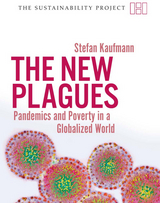
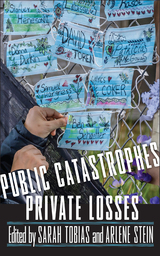
This essay collection explores how the definition of catastrophe might be expanded to include many forms of large-scale structural violence on communities, species, and ecosystems. Using feminist methodologies, the contributors to Public Catastrophes, Private Losses trace the connections between seemingly unrelated forms of violence such as structural racism, environmental degradation, and public health crises. In contrast to a news media that focuses on mass fatalities and immediate consequences, these essays call our attention to how catastrophes can also involve slow violence with long-term effects.
The authors also consider how these catastrophes are profoundly shaped by government action or inaction, offering a powerful critique of how government neglect has cost lives and demonstrating how vulnerable populations can be better protected. The essays in this collection examine how public catastrophes imprint themselves on lives, as individuals and communities narrate, process, and grapple with legacies of loss. The book is thus a feminist intervention that challenges the binary between public and private, personal and political.

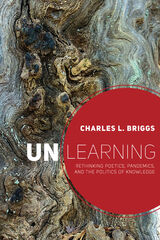
Eschewing narrow Eurocentric modes of explanation and research foci, Briggs brings together colonialism, health, media, and psychoanalysis to rethink classic work on poetics and performance that revolutionized linguistic anthropology, folkloristics, media studies, communication, and other fields. Beginning with a candid memoir that credits the mentors whose disconcerting insights prompted him to upend existing scholarly approaches, Briggs combines his childhood experiences in New Mexico with his work in graduate school, his ethnography in Venezuela working with Indigenous peoples, and his contemporary work—which is heavily weighted in medical folklore.
Unlearning offers students, emerging scholars, and veteran researchers alike a guide for turning ethnographic objects into provocations for transforming time-worn theories and objects of analysis into sources of scholarly creativity, deep personal engagement, and efforts to confront unconscionable racial inequities. It will be of significant interest to folklorists, anthropologists, and social theorists and will stimulate conversations across these disciplines.

READERS
Browse our collection.
PUBLISHERS
See BiblioVault's publisher services.
STUDENT SERVICES
Files for college accessibility offices.
UChicago Accessibility Resources
home | accessibility | search | about | contact us
BiblioVault ® 2001 - 2025
The University of Chicago Press




